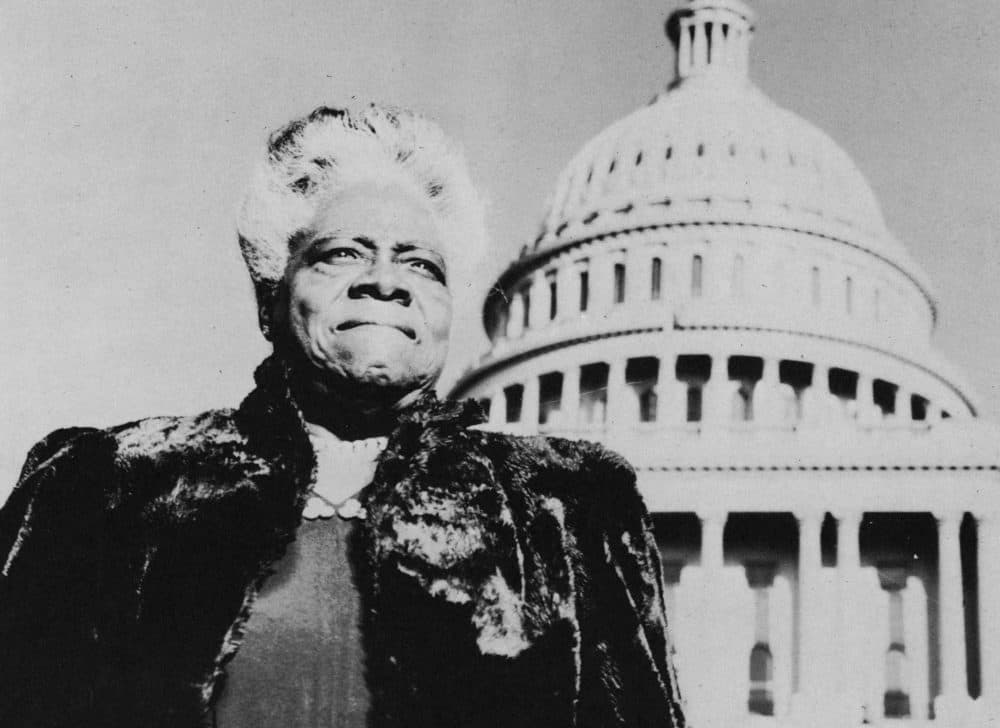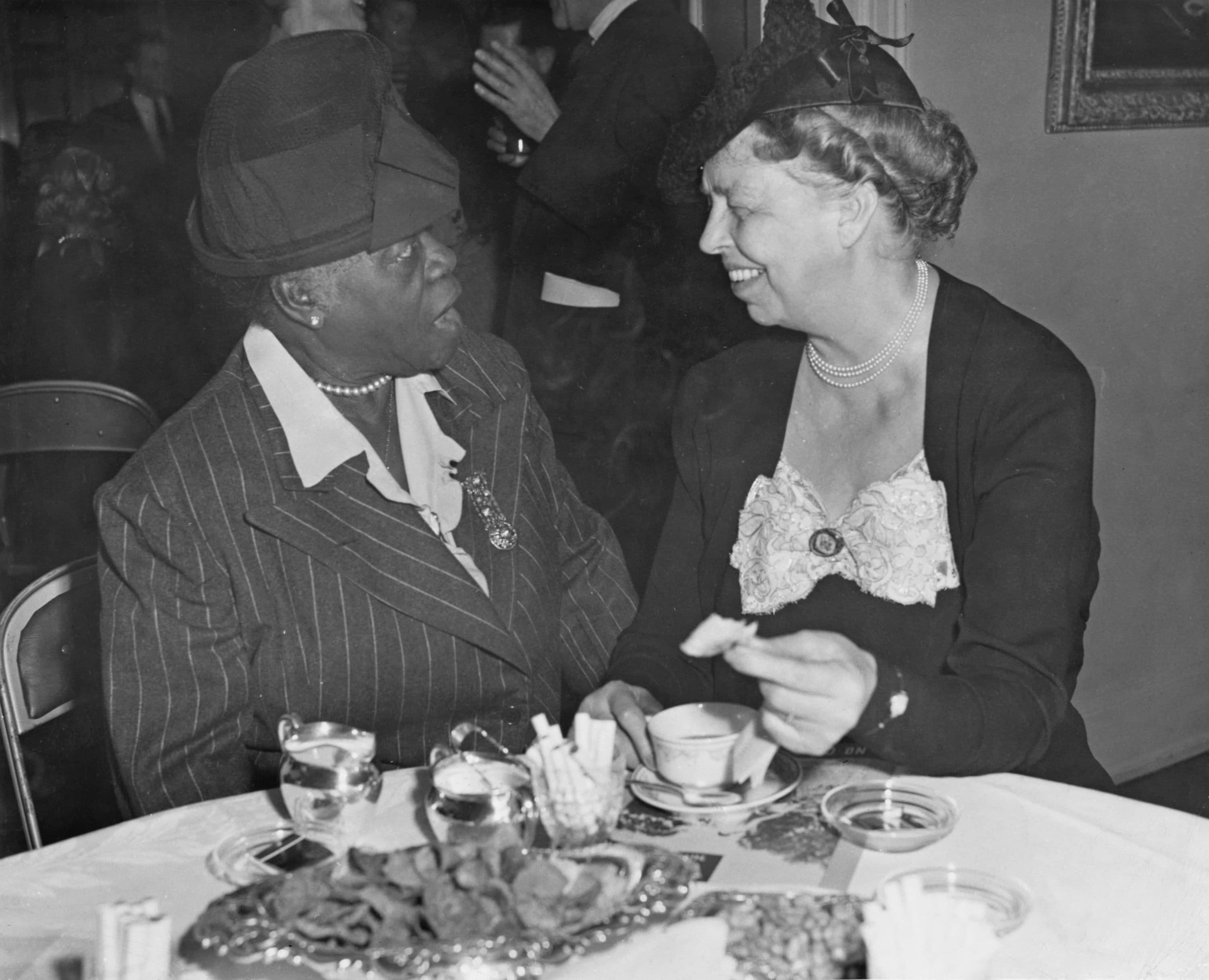Advertisement
Mary McLeod Bethune inducted as first Black member of Capitol's National Statuary Hall
Resume
Mary McLeod Bethune’s likeness will replace that of Confederate Gen. Edmund Kirby Smith in the National Statuary Hall of the Capitol building.
Though the hall has undergone revisions like Smith’s statue being removed in 2021, civil rights activist Bethune is the first Black American honored. Her statue will represent the state of Florida, and House Speaker Nancy Pelosi is hosting the statue unveiling Wednesday.
Bethune was born in South Carolina to formerly-enslaved people in 1875 and worked on her family’s cotton farm before attending schools in North Carolina and Illinois. She then became an educator herself in South Carolina and eventually Florida. She opened a boarding school in Daytona Beach called the Literary and Industrial School for Training Negro Girls in 1904.
The school merged with the all-male Cookman Institute in 1929 to form the still-operational Bethune-Cookman College. For these advancements in education, Bethune has long been regarded as one of the most influential Black educators in American history, setting the standard for other historically Black colleges and universities.
“The land was technically sitting on a dumping ground,” says Dr. Julius John, associate professor of speech communication and theatre at Bethune-Cookman University. “She purchased the land for $1.50, and she erected the first school for African American girls.”
Bethune’s work went far beyond education. She also championed the rights of women and Black Americans. Bethune risked racist attacks to organize women’s voter drives after the 1919 passing of the 19th amendment, granting women the right to vote. During the Great Depression, she led efforts to convert Black voters from Republicans to Democrats.
“She faced a lot of Ku Klux Klan and everything else as she was doing that,” John says. “But she stood her ground, so to speak. She changed the lives of many, and she continues to change the lives of many.”
Bethune’s activism landed her political prowess, too, and she gave a voice to unrepresented Black voices in America. In 1924, the National Association of Colored Women’s Clubs elected her president. She also served as the founding president of the National Council of Negro Women in 1935, and vice president of the National Association for the Advancement of Colored People in 1940. She stayed in her role with the NAACP until her death in 1955.

A close friend of former first lady Eleanor Roosevelt, Bethune was named director of Negro Affairs for the National Youth Administration by President Franklin D. Roosevelt and served as the leader of his unofficial Black cabinet. Her collaboration with U.S. presidents didn’t end there, as President Harry S. Truman appointed her to participate in the 1945 founding conference of the United Nations. Bethune was the only woman of color in attendance.
“She assisted four different presidents,” John says.
Though states were granted the ability to replace the statue representing them in Statuary Hall in 2000, none of the new additions had been Black historical figures. Statues of Black American history-makers like Frederick Douglass and Rosa Parks do exist in Statuary Hall but are not part of the national collection like Bethune’s.
“She's sitting among greats,” John says. “I'm sure they're welcoming her with open arms. Her legacy lives and will always live.”
Chris Bentley produced and edited this interview for broadcast with Peter O'Dowd. Grace Griffin adapted it for the web.
This segment aired on July 13, 2022.


